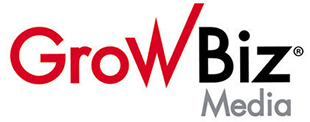It’s a tale as old as time: startups and small businesses are so involved in keeping the doors open and getting the job done that tracking expenses and bookkeeping aren’t prioritized. It’s logical in your business to focus on the product or service you’re providing customers. It’s what you’re good at and what you get paid to do.
Why Track Expenses
Things get complicated when the money flows. Even if you’re one of the 99.9% of businesses classified as small businesses, the folks at the IRS insist you send them a share of your profit. You’ve worked hard for that money, so you want to keep as much as you legally can. Knowing what you’ve spent your money on can provide you with reasons to send less of it to the Treasury Department.
And, running a business is expensive. The cost to start a small business can range from $10,000 to $1 million.
Keeping your bank balance and expenses in your head promises unpleasant surprises. A complete picture with accurate information lets you make the best decisions about whether to expand or contract your business. Can you add a new employee? Should you close a location? Is now the right time to buy that piece of equipment that will make your work more efficient? When you know your revenue and your expenses, you can build a budget, which will help you run your business more efficiently.
Scale Your Bookkeeping and Know Your Expenses
Given the frenetic nature of running your business, it may be wise to know some crucial metrics. Income is good, but odds are you don’t have a wide range of income streams to track, and right now, it’s only binary: You got paid, or you didn’t get paid.
On the other hand, the money you spend to support your business can seem like a never-ending mishmash of expenditures. When you call on clients or visit a job site, you’ve got to account for the cost of getting there. That could mean a log to track your mileage, receipts (paper and digital) from rental vehicles or Uber, or hotel receipts. Finding your next customer means marketing expenses to track, such as a billboard, a web ad, mass-mailing a postcard, or buying an ad on the radio or a podcast. If you’re making a product, you need to track the cost of the items you use to make it, whether it’s fabric and buttons for clothing or wood, screws, and glue if you make birdhouses. If you have employees, your payroll is a tricky set of expenses. You’ll also likely have insurance expenses for your property and for liability.
The Big Five Expenses
Don’t get lost in the weeds. You’ll worry yourself to death if you concentrate on the number of paper clips or pens you’ve got. Instead, focus on the five main expenses most businesses have at the outset and you’ll have a good idea where the bulk of your money is going. The bonus to this list is that all these items can be deducted against your revenue in calculating your income when it comes to tax season.
Your business likely has these five key expenses. Know what they are and record them.
- Communications. Whether you’re a landscaper, a plumber, an Internet developer, a dressmaker, or an antique dealer, you’ve got to talk to people. The most reliable tools for that — and the ones that will probably account for a big, regular expense — are your monthly phone and Internet bills. Whether you talk, text, or email, you need them all to be available for a prospect or a client to reach you.
- Location Expense. If you make something, you’ll have to put it in a customer’s hands. Lump all these related expenses here: mailing correspondence or contracts, shipping a finished product, or physically delivering a product or performing a service.
- You can’t run your business by the seat of your pants. If you’re generating a service such as web design or have a legal practice, you’re going to need an office and related equipment: computers, desks, chairs, printers, copy machines. If you’re a landscaper, you’ll need weed trimmers, lawn mowers, and backhoes. If you’re making something, you need equipment that cuts, stamps, molds, or assembles your gizmo, and probably shelves and lift equipment for the place where you store finished product.
- Payroll and Related Costs. Pay special attention to this category because not only can it be a large portion of your expenditures, it can also be complicated. It also has the greatest potential to land you in hot water. If your business uses independent contractors, that’s an expense that requires tracking and reporting. If you’ve hired an employee, you’ll need to withhold, pay, and account for federal income tax, social security, and Medicare taxes (as well as state and local taxes).
- Business Use of Non-Business Property. If you are yourself an independent contractor — perhaps you’re an interior decorator, a home security installer, or a freelance graphic designer — then you may use your personal vehicle to drive to appointments, or you may have an area of your home set aside exclusively for your work or to meet with clients. Those expenses can be significant — and, when properly recorded, can be deducted from your tax obligation.
Beyond what’s enumerated above, consider that every business is unique. There may be something in your business that will be a noteworthy cause of expenditures that’s not included above. Don’t ignore that because it wasn’t listed in this article. If you’re a model and it’s important to buy makeup and fashionable clothing, pay attention to how much you’re spending and record it. If you deal in precious metals or art, the cost of security may be a big expense. Every business is unique.
How To Track Your Expenses
Open a bank account solely for your business to prevent commingling personal and business expenses (though some bookkeeping solutions enable you to segment expenses in a single account). Also keep a specific credit card for the business. Otherwise, it may be difficult months later for you to remember whether a specific coffee shop receipt was for personal purposes or a client meeting. Keep an eye on these accounts so you can understand your business’s cash flow and more easily spot expenses you can reduce or eliminate.
If you’re one of the 72% of self-employed people who do their own accounting, you can, of course, track your expenses yourself with any method that makes sense and is accurate. That might be a notebook or a spreadsheet. But most small businesses that plan to grow use bookkeeping software, outsource certain functions such as tax prep, and eventually put someone on staff. In an increasingly digital world, consider doing the same.
Expenses can be one of the reasons that 20% of small businesses fail every year. Make it your job to ensure you track them.
Garrett Baird is President and CEO of The Neat Company (Neat). He joined the company in 2020 to lead its entrance into the digital accounting space, helping small business owners spend more time growing their businesses while transforming mundane bookkeeping into actionable insights. @neatcompany. The newest such financial management software, like NeatBooks, works at your desk and on your phone, can link with your bank account(s) — and can even provide business intelligence like which your top expense categories are. All of these are preferable to tossing your paper receipts in a box or digital receipts in your email or random Dropbox folder. Instead, digitize them into a centralized system where they will be automatically matched to your bank account details – for a complete picture of your business.
Expenses stock image by Tom Mc Nemar/Shutterstock



